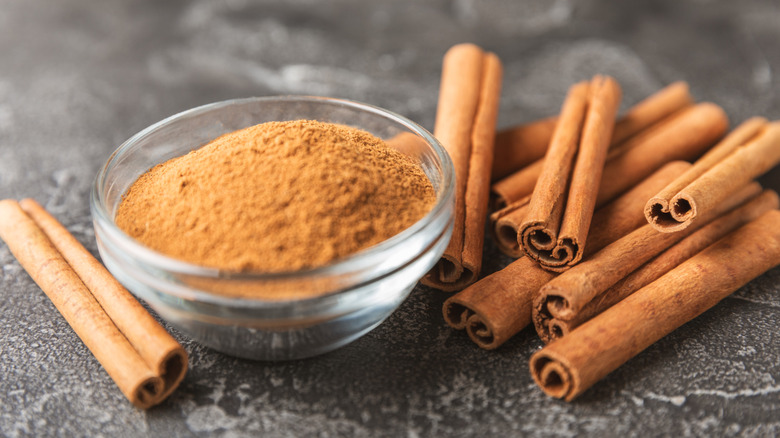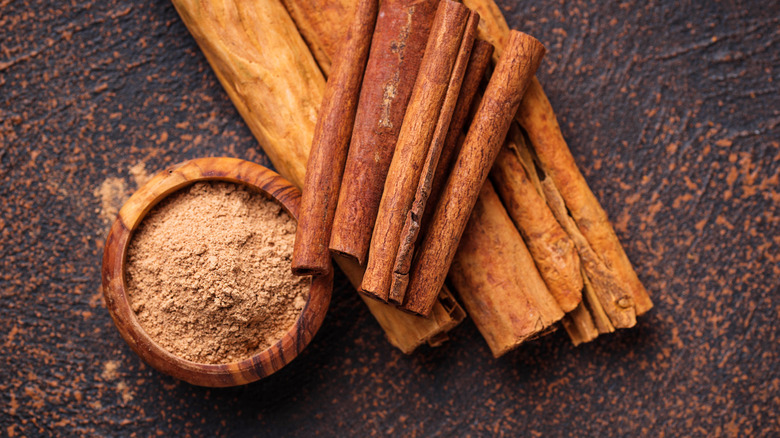What's The Difference Between Cinnamon And Vietnamese Cinnamon?
Cinnamon is one of the most commonly used spices in cooking, whether you're making snickerdoodles or a meat marinade. It's not surprising that its first recorded use (as a medicine) dates all the way back to around 2500 B.C. This spice is derived from the inner bark of the cinnamomum tree which is either rolled into the familiar cinnamon sticks, or ground into a powder. When buying this spice, it would be easy to assume that it's all the same, but that's certainly not the case.
The cinnamon most commonly found in stores is Chinese cinnamon, also known as cassia cinnamon. But another variety, which is often mistaken for being the same, is Vietnamese or Saigon cinnamon. Although these two types are closely related, they differ in flavor, color, and health benefits. Vietnamese cinnamon contains a much higher amount of cinnamaldehyde, an essential oil that contributes to its stronger aroma and taste.
Not all cinnamon is created equal
Although Chinese cinnamon and Vietnamese cinnamon both bring a spicy flavor, Vietnamese cinnamon is more intense in its spiciness as well as its sweetness. While Chinese cinnamon has subtle hints of sweetness and spiciness, the higher oil content in Vietnamese cinnamon allows these flavors to shine through more vibrantly. This means that you need to use far less Vietnamese cinnamon to achieve the same intensity of flavor as its Chinese counterpart. Vietnamese cinnamon has the perfect intensity for sweet baked goods, like apple pies or brown butter cinnamon rolls, where this spice plays an important role. It's also the ideal cinnamon for making proper Vietnamese pho.
Vietnamese cinnamon can be lighter in color, often exhibiting more of a yellowish brown tone as opposed to the darker browns and reds of Chinese cinnamon. If stored for a long time or dried, the two types of cinnamon can start to look similar in color, which is why taste is the best way to differentiate between them. Appearance and flavor aside, Vietnamese cinnamon might also bring some great health benefits.
Benefits of consuming cinnamon
Although both types of cinnamon can be beneficial, the higher levels of cinnamaldehyde found in Vietnamese cinnamon mean increased antioxidant and anti-inflammatory properties. Including Vietnamese cinnamon in your diet can help reduce the risk of conditions such as type 2 diabetes, heart disease, or metabolic syndrome, all of which are associated with chronic inflammation. The high level of antioxidants in this spice also help protect your body's cells from harmful free radicals.
On top of that, it has been found that both Chinese and Vietnamese cinnamon can help to lower blood sugar levels by reducing insulin resistance. Additionally, both types of cinnamon have antibacterial properties, making them a great addition to products with a risk of bacterial contamination. So, the next time you're picking up some cinnamon at the store, make sure you take a moment to choose the right variety for your cooking and health needs.


